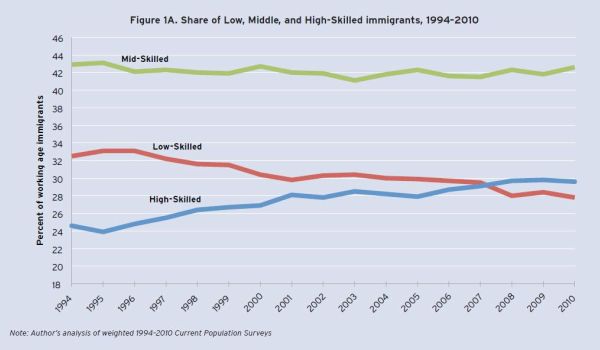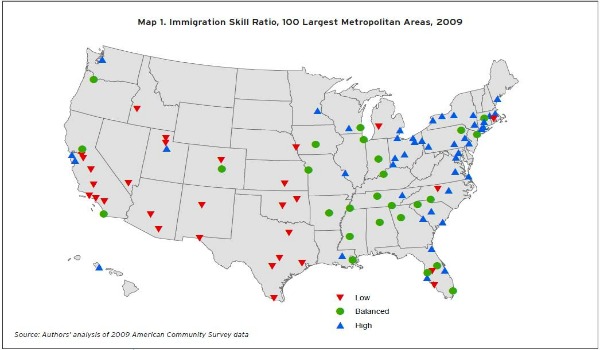Why Immigrants Are Good for Our Economy
High-skill immigrants are more prevalent--and economically important--than ever before

Immigration remains a hotly debated issue across America and may prove a key sleeper issue in the looming 2012 presidential campaign, as my colleague Josh Green wrote yesterday. He notes that "whites are far more pessimistic about their prospects and their children's prospects--and many mistakenly believe that illegal immigrants are the primary culprit." He adds that "widespread misconceptions about the economic effects of immigration" stem "from a lack of information that's largely due to both the Democratic and Republican parties' unwillingness to pursue immigration reform, after years of failed attempts."
Nonetheless, a wide body of research shows the ways that immigration powers the twin engines of American innovation and entrepreneurship. Foreign-born founders and entrepreneurs stand behind anywhere from a third to a half of Silicon Valley high-tech startups, and comprise huge shares of computer scientists and software engineers.
A new Brookings Institution report provides important new data and evidence on the role of immigration and immigrants across US metros. Two conclusions stand out.

The share of high-skill immigrants has risen consistently over the past several decades, as the chart above shows; there are more high-skill immigrants in the United States now than low skill ones. As the report notes, "In 1980, just 19 percent of immigrants aged 25 to 64 held a bachelor's degree, and nearly 40 percent had not completed high school. By 2010, 30 percent of working-age immigrants had at least a college degree and 28 percent lacked a high school diploma."

The map above charts immigrant skill levels--high, low or balanced--by metro area. The report classifies metros by type and timing of immigration, and notes that, "compared with their U.S.-born counterparts, low-skilled immigrants have higher rates of employment and lower rates of household poverty, but also have lower individual earnings, in all types of metro areas." 44 of the nation's largest 100 metro areas--including Washington, DC and San Francisco--are high-skill immigrant destinations, where college educated immigrants outnumber those that did not complete high school by at least 25 percent.
The report calls for a more pragmatic approach to immigration with a flexible admissions system that can respond to the evolving needs of the labor market as a cornerstone of regional and national competitiveness.
Let's hope the administration, the Congress and the American people are paying attention. With such a fragile recovery, America can ill afford to cut off the stream of talented immigrants that are-and have long been-such a critical source of the innovative and entrepreneurial dynamism of its regional and national economies.
Image Credit: Ints Kalnins / Reuters